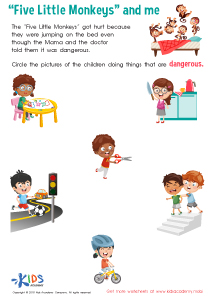Vocabulary expansion Easy Building Vocabulary Worksheets for Ages 7-8
6 filtered results
-
From - To
Enhance your child’s language skills with our tailored "Vocabulary Expansion Easy Building Vocabulary Worksheets for Ages 7-8". Designed specifically for second and third graders, these worksheets provide a fun and engaging way to boost your child’s word power. With a variety of activities focusing on synonyms, antonyms, word meanings, and more, your child will gradually develop a robust and nuanced vocabulary. Interactive and easy to follow, each worksheet aims to nurture a love for reading and communication. Give your 7-8 year old the tools to express themselves clearly and confidently with our well-crafted vocabulary-building resources.
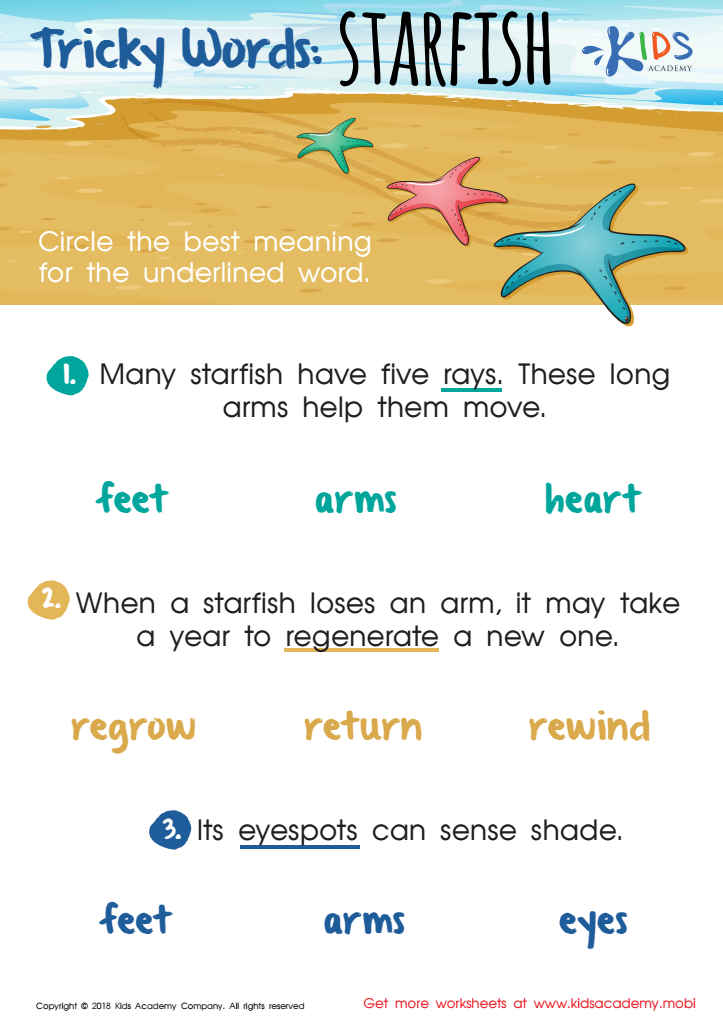

Tricky Words: Starfish Worksheet


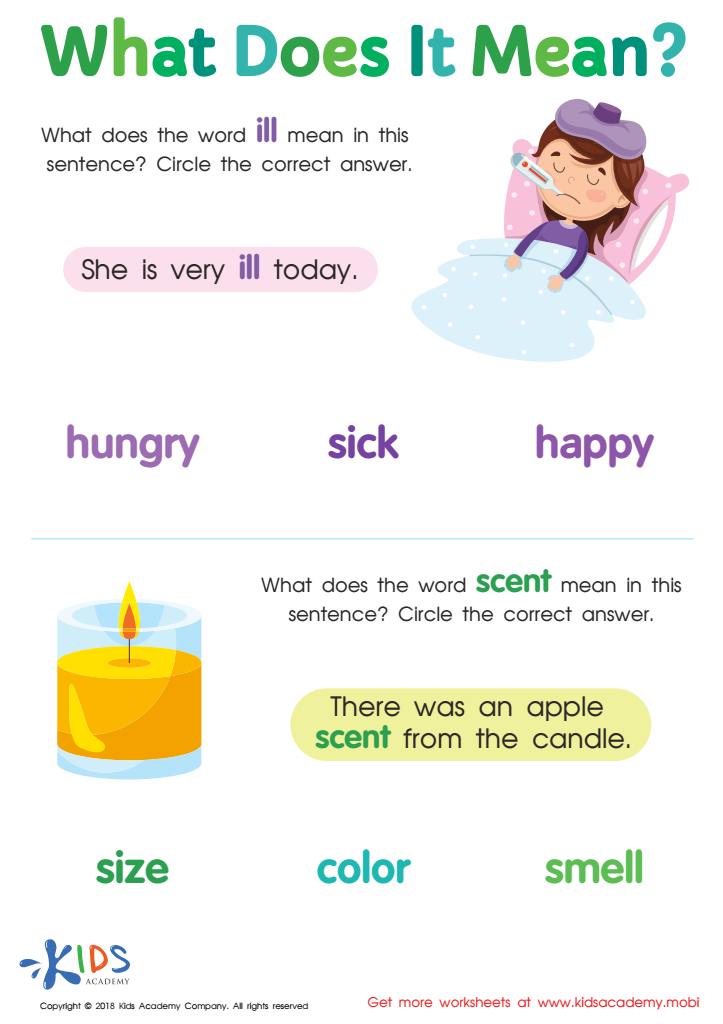

What Does It Mean? Worksheet
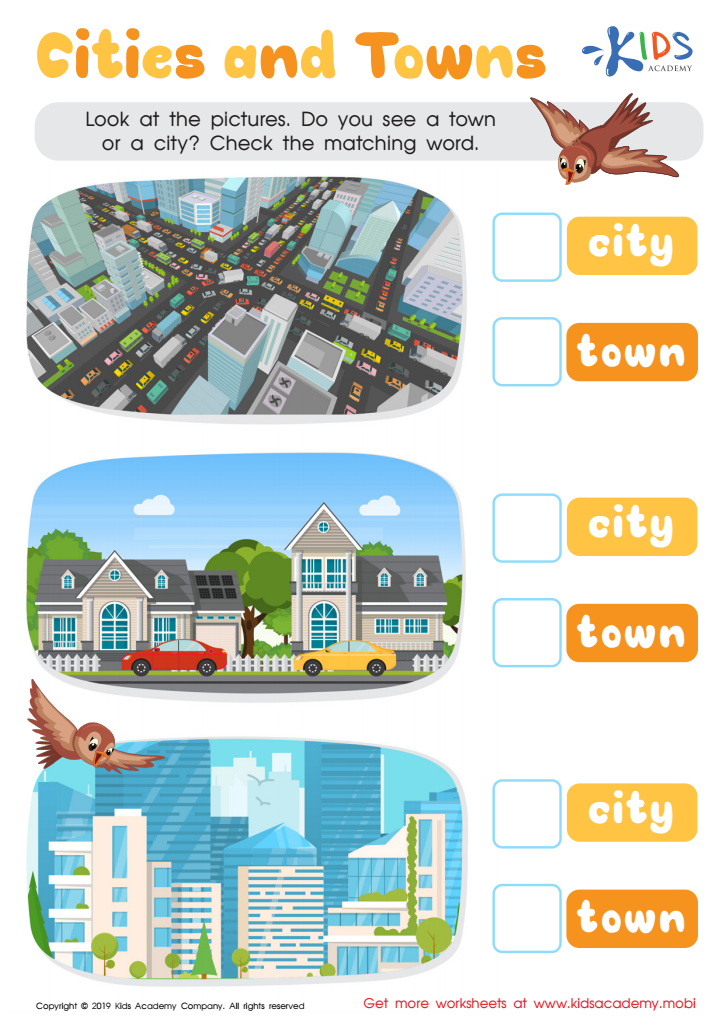

Cities and Towns Worksheet
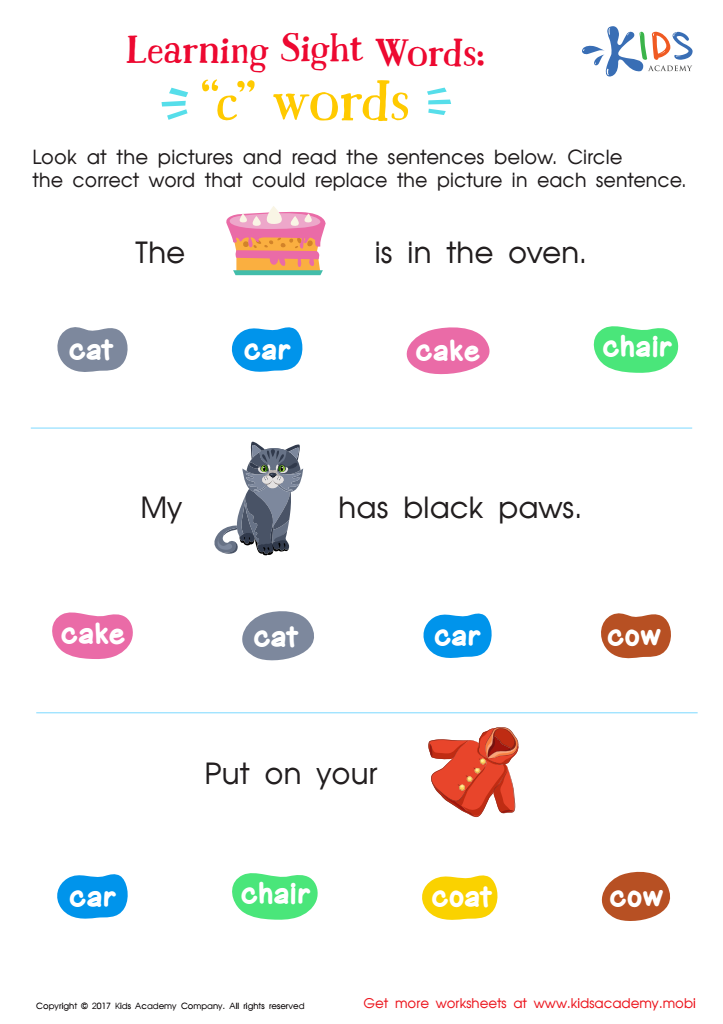

"C" Words Printable Sight Words Worksheet
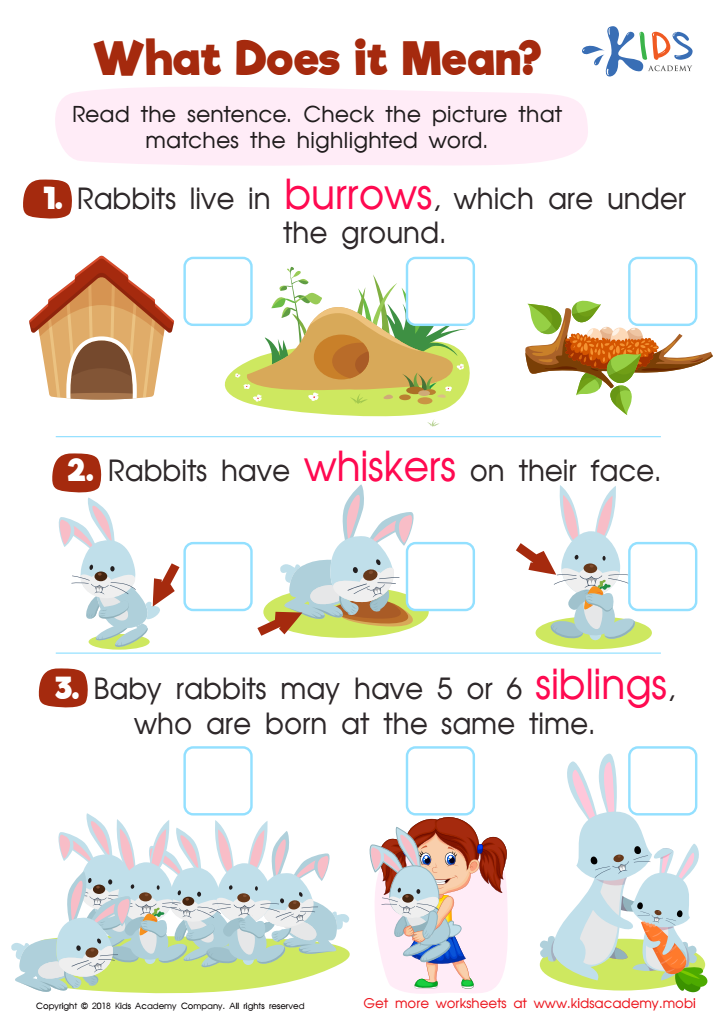

What Does It Mean? Worksheet
Vocabulary expansion is crucial for children aged 7-8 as it serves as a foundational element in their cognitive, academic, and social development. At this stage, children transition from "learning to read" to "reading to learn." A robust vocabulary enhances reading comprehension, allowing children to understand texts more deeply and facilitating further learning across subjects like math, science, and social studies.
For parents and teachers, investing time in building a child's vocabulary can have profound, long-term benefits. Strong vocabulary skills enable children to express themselves more clearly and confidently, both orally and in writing. This is essential not just for academic success but also for effective communication in daily interactions.
Moreover, a rich vocabulary can ignite a child's curiosity and foster a love for reading. Children who recognize and understand a wide array of words are more likely to enjoy and engage with books, fueling a cycle of continuous learning and discovery. Practical vocabulary-building activities, such as interactive read-alouds, word games, and discussions, make learning exciting and engaging for young minds.
Ultimately, prioritizing vocabulary expansion equips children with the tools they need for critical thinking, problem-solving, and forming relationships, setting a strong foundation for lifelong learning and personal growth. Therefore, it's vital for parents and teachers to actively support and enhance vocabulary development during these formative years.

 Assign to My Students
Assign to My Students

























